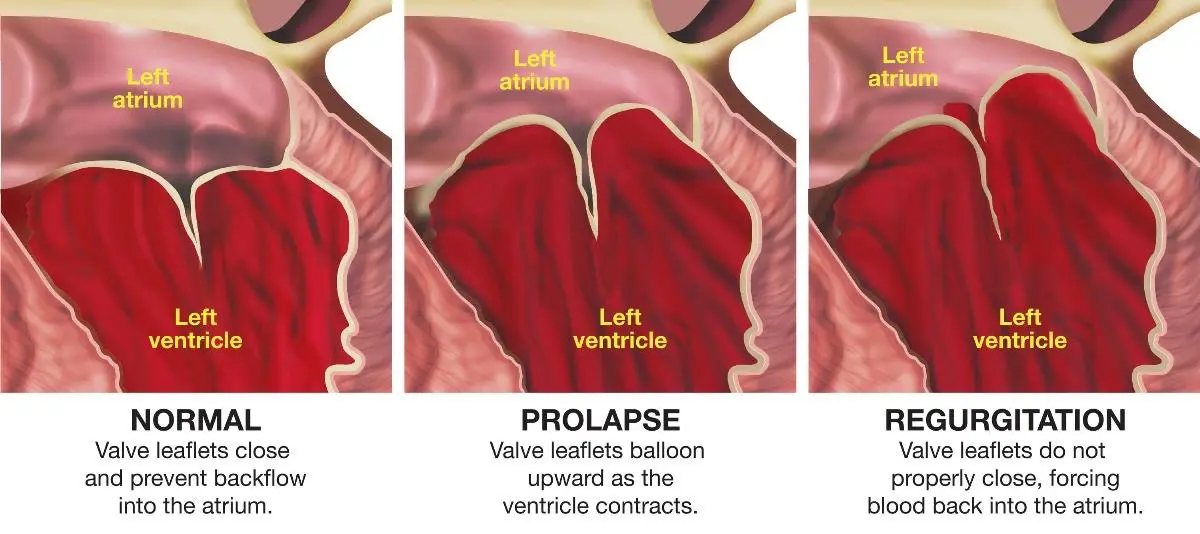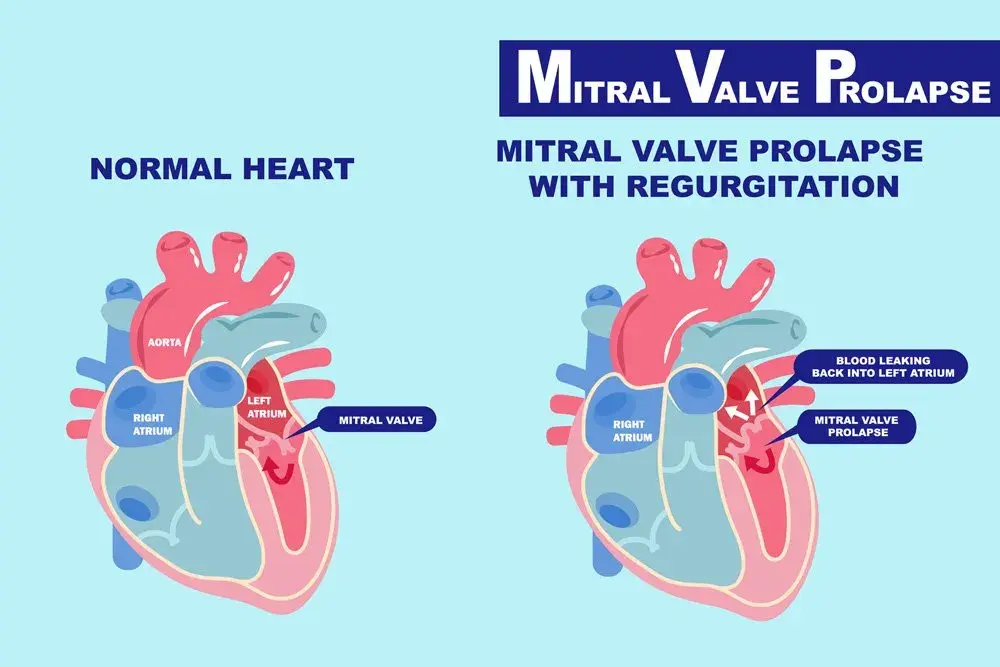Can Mitral Valve Prolapse be Cured?
Sometimes
Most cases are mild and don’t require treatment; outcomes depend on the severity of symptoms and the presence of complications

What is Mitral Valve Prolapse?
Mitral valve prolapse is a condition where the valve between the left atrium and left ventricle of the heart doesn’t close properly. While often asymptomatic, it can cause chest pain or palpitations. Treatment is typically focused on managing symptoms and monitoring for potential complications. In severe cases, surgery may be considered.

Clinical Aspects

Characteristics
Structural abnormality of the mitral valve where the valve flaps do not close properly

Symptoms
Often asymptomatic; chest pain, palpitations, fatigue

Diagnosis
Echocardiogram, clinical examination

Prognosis
Generally good with appropriate management and treatment

Complications
Arrhythmias, complications of untreated prolapse
Etiology and Treatment

Causes
Genetic factors, connective tissue disorders

Treatments
Usually not required; in severe cases, beta-blockers or surgery may be considered

Prevention
Usually not required; in severe cases, beta-blockers or surgery may be considered
Public Health and Patient Perspectives

Epidemiology
Improper closure of the mitral valve

Patient Perspectives
Management aims at relieving symptoms and preventing complications
While the information presented here reflects the current knowledge about these conditions and treatments, it’s important to understand that individual cases may differ. Consulting with a healthcare professional is crucial for accurate information tailored to your specific needs.
Share: